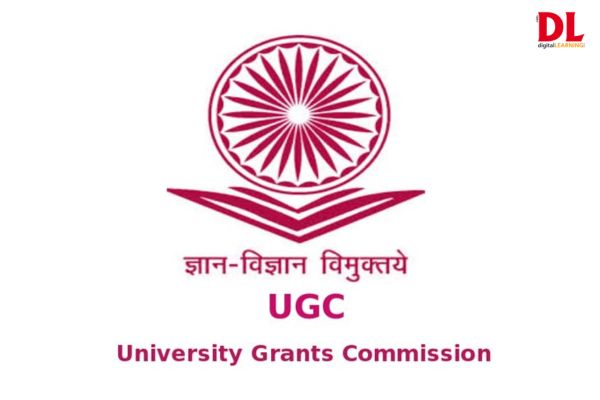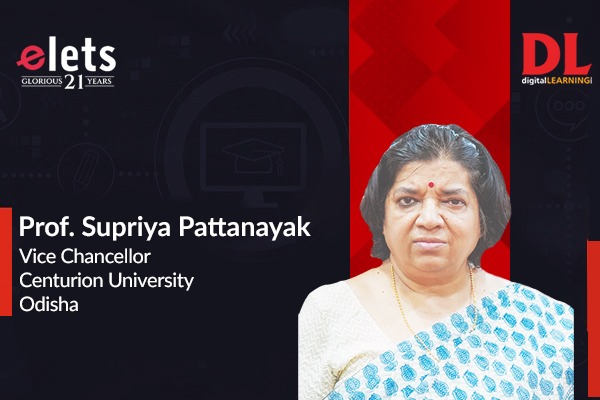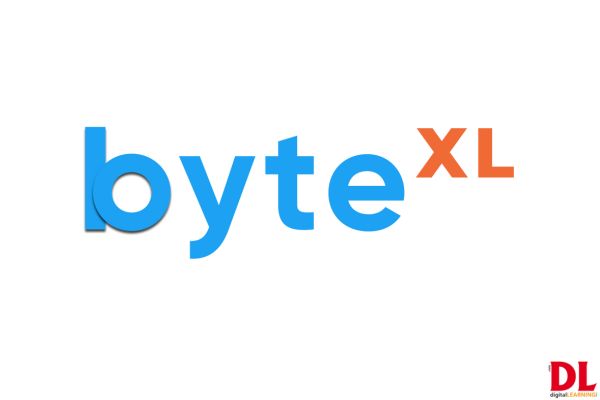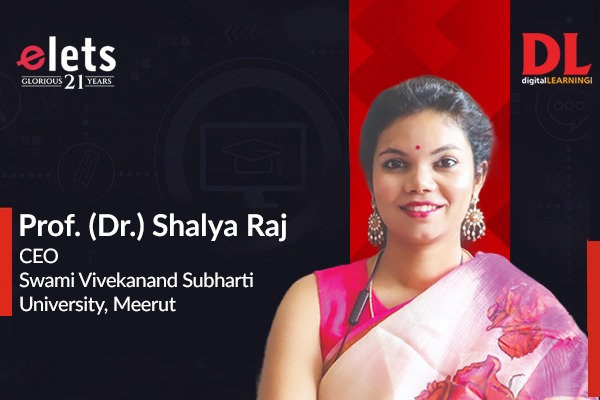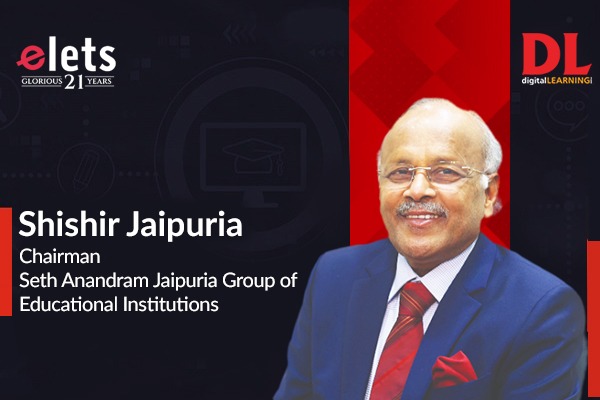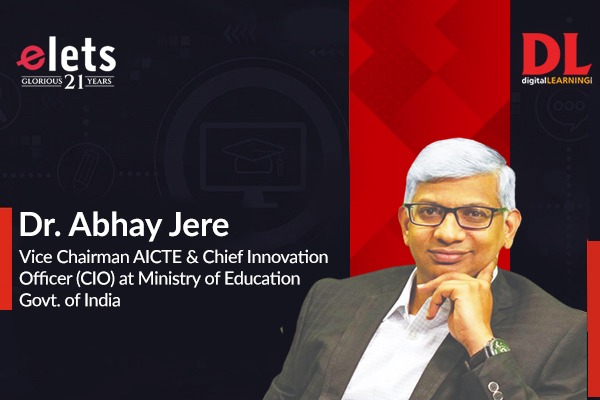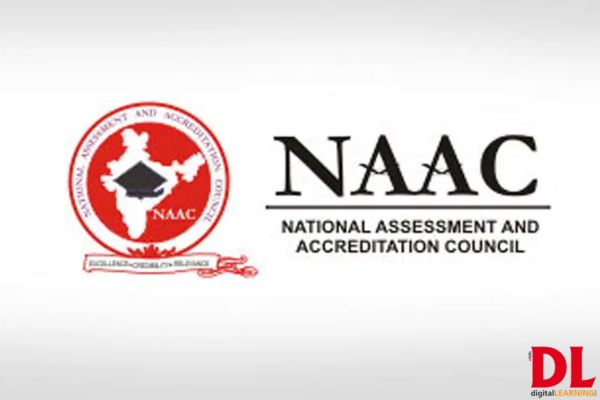The landscape of Indian technical education is undergoing a significant transformation,
driven by rapid technological advancements, evolving industry demands, and a renewed
focus on skill-based learning. With initiatives like updated curricula, enhanced industry
collaboration, and increased emphasis on research and innovation, India is poised to become a global leader in technical education. Rajive Kumar, Member Secretary of the All India Council for Technical Education (AICTE), delves into the transformative strides made in technical education across India in an exclusive interview with Elets News Network (ENN).
Before discussing AICTE’s plans, could you share your journey and contributions to the education sector over the past decades?
Certainly, I began my career as a mathematician, completing my Ph.D. from IIT Delhi and my master’s from IIT Roorkee. I initially joined DCR University of Science and Technology, Haryana, as a mathematics faculty member. Later, I pursued an M.Tech in computer science, which led to my transition from mathematics to computer science and engineering. In 2016, I joined AICTE as an advisor and Chief Vigilance Officer. Since 2019, I have been serving as the Member Secretary. During my tenure, we’ve implemented key policy changes, including revising outdated engineering, management, and pharmacy curricula and introducing a model curriculum that universities nationwide have widely adopted.
One significant initiative is the National Credit Framework (NCF). How do you see NCF impacting the employability of graduates in the next five years?
The National Credit Framework is pivotal in integrating skills into higher education. It provides a structured level system, from level 3 (10th grade) to level 8 (Ph.D.). This framework allows students to switch disciplines and offers flexibility with multiple entry and exit points, incorporating skill-based courses. For instance, 50% of the courses can be skill-oriented, allowing students to earn credits through various skill development courses.
Recently, AICTE developed model curricula for BBA, BCA, and BMS programs. How have educational institutions responded to these new curricula?
This year, we integrated BBA, BCA, and BMS programs under AICTE’s purview, and we’ve already approved over 4,500 institutions. Our goal was not just to grant approvals but to enhance students’ employability through structured education. A committee was formed to revise the curricula, and the new model curricula for these programs will be released within a few days. We have designed curricula for both three-year and four-year programs, incorporating minor degree courses to offer students more options. We expect universities to adopt these curricula soon, benefiting students significantly.
With the emphasis on integrating skill-based courses into technical education, how is AICTE ensuring that the curriculum remains relevant and aligned with industry requirements?
Ensuring curriculum relevance is crucial. We collaborate closely with industry representatives to align our curricula with their needs. For example, our new BBA, BCA, and BMS curricula were developed with industry experts. We are also integrating skill-based courses into engineering curricula, leveraging inputs from industry to prepare students for emerging technologies.
Another excellent initiative is AICTE’s Support to Students for Participating in Competition Abroad (SSPCA) scheme. What led to its creation, and how does it benefit students?
The SSPCA scheme was created to support students participating in international competitions. Through this scheme, we provide up to INR 10 lakhs to support teams selected for international competitions. This funding covers transportation and other costs, enabling students to showcase their talents globally. The scheme, started six years ago, has been highly beneficial for many students.
Yes, we have several schemes to support students. For example, we fund visits to technological marvels and historical sites to enhance students’ learning experiences. We also help students present papers at conferences and fund student clubs in institutions.
What are AICTE’s top priorities for the next few years?
Our top priorities include creating a workforce for chip manufacturing and design, logistics, travel and tourism, and advanced communication technologies. We are building capacities in these areas within our institutions. For instance, we recently collaborated with a Taiwan delegation to connect Indian institutions working in VLSI (Very Large Scale Integration) with their Taiwanese counterparts.
How does AICTE’s work align with the vision of a ‘Viksit Bharat’ as our honourable Prime Minister Narendra Modi envisioned?
Our initiatives are closely aligned with the vision of ‘Viksit Bharat.’ We are committed to creating a skilled workforce in emerging technologies, logistics, and blue economy sectors. We aim to contribute to India’s growth and development by providing relevant education and skill development. Our students, equipped with the right skills and knowledge, will be the driving force behind realising this vision.
Can you elaborate on the structural changes the National Credit Framework (NCF) brought about and how educational institutions and students receive these changes?
The National Credit Framework (NCF) is designed to be transformative. By defining levels from grade 10 to PhD, we offer a standardised yet flexible approach to education. Students can transition between different disciplines seamlessly. This framework promotes a holistic learning experience by allowing students to accumulate credits from various skill-based courses. The feedback from educational institutions has been overwhelmingly positive, as this framework aligns with the contemporary educational goals of flexibility, inclusivity, and skill development.
Could you provide more details on the development process of BBA, BCA, and BMS programs curricula and how they address current educational and industry needs?
Developing the model curricula for BBA, BCA, and BMS programs involved extensive collaboration with industry experts, academic leaders, and educators. Our primary objective was to ensure these programs aligned with industry trends and demands. We formed a committee comprising industry professionals and educational experts to revise and develop these curricula. The new model curricula include core subjects, elective courses, and minor degree options to provide students with a comprehensive education covering theoretical knowledge and practical skills.
How does AICTE plan to continuously update these curricula to keep pace with rapid technological advancements and changing industry requirements?
Continuous curriculum updates are essential to keep pace with technological advancements and industry changes. AICTE has established a system of regular review and revision cycles involving feedback from industry partners, academic experts, and alums. We conduct periodic workshops and consultations to gather insights on emerging trends and skills required in the job market. Additionally, we encourage institutions to integrate industry-led courses and certifications, ensuring that students receive the most up-to-date education.
Moving on to the Support to Students for Participating in Competition Abroad (SSPCA) scheme, could you share some success stories or examples of how this initiative has positively impacted students?
The SSPCA scheme has profoundly impacted many students. For instance, a team from a leading engineering college participated in an international robotics competition in the United States. With the SSPCA scheme’s financial support, they could transport their equipment and cover travel expenses, which would have otherwise been a significant barrier. The team participated and won accolades, showcasing their innovation and technical skills on a global platform. Such experiences boost students’ confidence and enhance their learning and career prospects.
Beyond financial support, what other measures is AICTE taking to prepare students for international competitions and global exposure?
Besides financial support, AICTE focuses on comprehensive preparation for students. We organise workshops and training sessions to enhance their technical skills, presentation abilities, and cultural awareness. We also facilitate mentorship programs where experienced faculty and industry professionals guide students through preparation. Furthermore, we encourage institutions to establish dedicated clubs and centres for innovation and competition preparation. These measures ensure that students are financially supported and well-prepared to excel in international competitions and gain valuable global exposure.








